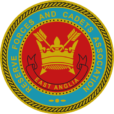The Reserves Continuous Attitude Survey (ResCAS) is one of the main ways that the Ministry of Defence gathers information on the attitudes and experiences of volunteer reservists. The survey has been distributed annually since 2014, and this year for the first time, it included additional Tri-Service questions on Reserve well-being. The full report is located here on gov.uk.
East Anglia RFCA maintains 14 Army Reserve Centres for about 40 Reserve Forces units to attend weekly evening or weekend training. (The RAF Reserves units train, as all RAF Reserves do presently, out of RAF stations rather than sites managed by the RFCA.)
However the ResCAS doesn’t include any questions about premises, so it cannot yet provide the RFCA or the MOD with information about whether the location or standards of Army Reserve Centres contribute to the recruitment or retention of reservists.
The RFCA also provides a Employer Engagement service via the Defence Relationship Management department. Based in London, the department’s Regional teams are embedded into each of the 13 RFCAs to provide local support to reservists and promote the Ministry of Defence’s Employer Recognition Scheme to businesses.
Six of the ResCAS questions relate directly to civilian employment (see image below). The majority of reservists report their employer is supportive of their reserve service. 18% of reservists think their employer would prefer that they were not a reservist, but the survey does not provide additional insights about why reservists feel that way.

In terms of demographics, ResCAS 2022 mentions:
- Nearly two-thirds (63%) of RAF Reservists have been members of a Service Cadet Force compared to a third (33%) for the other two Services.
- ResCAS respondents were 20% female.
- 7% of respondents were aged 18 to 24.
- Over 50% of reservists who filled out this survey support 1 or more children financially.
- 28% of reservists who filled out this survey aren’t in a relationship.
- 95% of respondents are White.
The additional questions about reservists’ well-being included: “Overall, how happy did you feel yesterday?” on a 1 to 10 scale. The average level of happiness among the reservists who responded was around 6.5. The report warns that comparisons with national well-being can’t be made because the majority of respondents are male and national figures include a larger proportion of over 60s, who generally score their well-being higher than younger people. The national well-being results place people’s reported happiness at 7.6, which is indeed much higher. A separate dataset by the ONS on well-being and loneliness does however provide age-related data and gender-specific data for the same question, and places the average response for 16-69 year olds at 6.9.

The RFCA’s External Scrutiny Team takes into account information from the ResCAS in its annual report into the state of the Reserve Forces, and an assessment of capability. Usually released in the July of each year, the EST’s 2021 report was submitted in May of 2022 following covid disruptions and the 2022 report has not yet been submitted to the Library of the House of Commons by the Secretary of State for Defence Ben Wallace.


